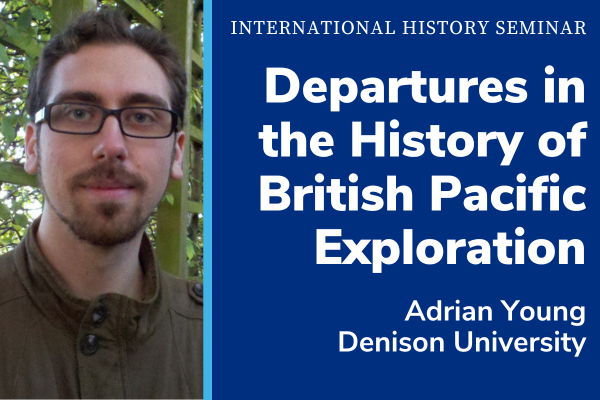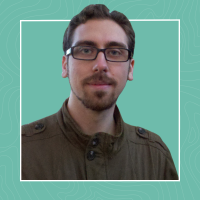
Reception will run from 3:30pm to 4:00pm, the talk will begin at 4:00pm.
Arrival is a much freighted moment in the historiography of imperial exploration, in and beyond the Pacific. Entire historical literatures are devoted to the early moments of encounter in which alien societies met and made sense of each other, and from which entangling colonial relationships were established. In the popular consciousness, too, scenes of arrival are perpetually restaged; Captain Cook lands and, in statues and textbooks, never stops landing. Departure, on the other hand, is significantly understudied and undertheorized. But how did British explorers and their Pacific hosts navigate moments of leave-taking? And, further, how did explorers work to cement colonial claims and colonial relationships when ephemeral and transitory moments of encounter came to an end? Taking as its archive the published expedition journals of British sailors in the 18th and early-19th century Pacific, this paper reorients our historical gaze toward moments of departure by examining colonial strategies for staging leave-taking, and for mitigating anxieties occasioned by the endings of expeditionary encounters.
Speaker

Adrian Young is a historian of science and the British empire, with a particular interest in the history of knowledge making at the margins of the colonial world. He offers survey courses on the history of Europe, Britain, and modern science, as well as seminars on topics ranging from race and empire to the history of islands in western thought.
Dr. Young’s research documents the entangled relationships between indigenous subjects and colonial researchers, seeking to understand how Europeans and their interlocutors built new understandings of the human through situated encounters at the edges of empire. His doctoral dissertation, which he is currently revising for publication, traced the history of Pitcairn and Norfolk Islands as long-term field sites and “natural laboratories.” Populated by the descendants of kidnapped Tahitians and the mutineers of the British naval vessel Bounty, these two Pacific islands served as celebrated sites of racial and cultural hybridity in the Anglophone world, attracting the interest of travel writers, missionaries, eugenicists, anthropologists, linguists, and other investigators across the last two centuries.
Dr. Young received B.A.s in history and international relations from The Ohio State University (2008), and an M.A. and Ph.D. in history from Princeton University (2011, 2016). Before coming to Denison in the fall of 2017, he was a postdoctoral fellow at the Humboldt University of Berlin and the Berlin Center for the History of Knowledge.
About the International History Seminar
If you are interested in attending this semester’s events and joining the International History Seminar, please send an email confirming your interest to the Hayes Chair Graduate Research Associate, Cam Givens, at hayeschairgra@osu.edu, and you will be included on the mailing list going forward. Select materials can only be pre-circulated to those who have signed up.
